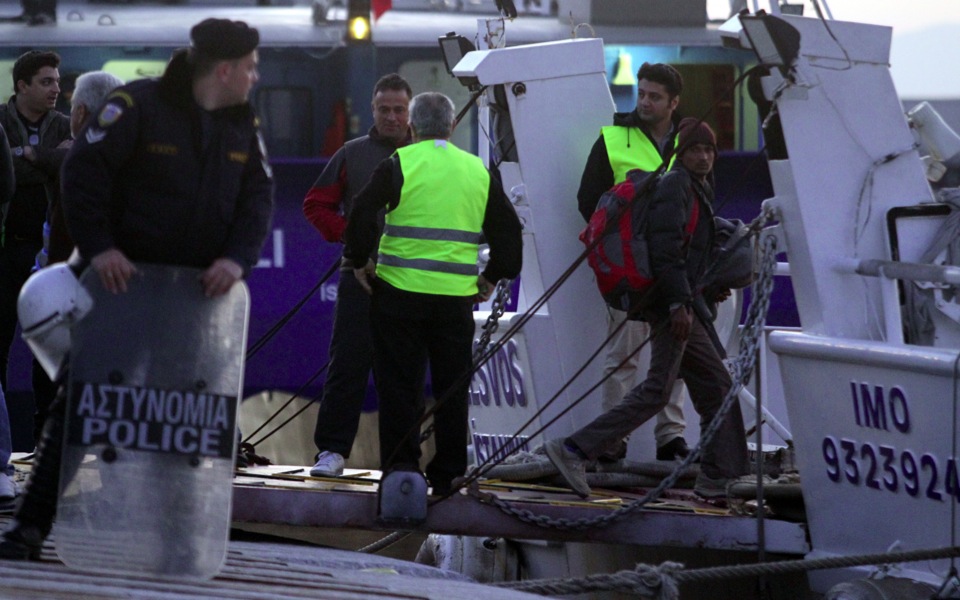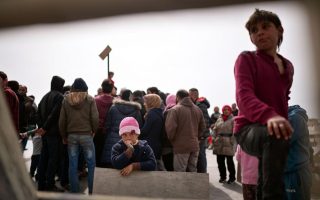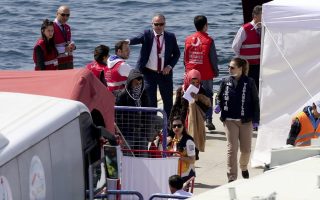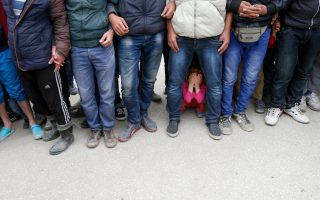First day of migrant transfers to Turkey runs smoothly but challenges remain

Greece began sending migrants back to Turkey on Monday as part of a landmark deal between the European Union and Ankara to stem their flow into Europe. Authorities said 202 irregular migrants left the islands of Lesvos and Chios on three boats to Turkey.
Part of the deal signed last month states that migrants who enter Greece illegally from March 20 onward and are not eligible for asylum should be returned to Turkey. On Lesvos, 136 migrants were transported from the Moria registration center, or hot spot, at 3 a.m. on four buses to the island’s port of Mytilene, where authorities conducted body and luggage searches, while Turkish officials checked the passenger list.
The migrants from Lesvos boarded two ships to Turkey along with dozens of Frontex border agency officials, four doctors and at least four interpreters.
“Police officers, mainly from France, but also from Denmark, Latvia, Lithuania and Luxembourg, arrived on the island for the operation,” Frontex spokesperson Ewa Moncure told Kathimerini, who added that they will be joined by security officials from Portugal in the coming days.
At the same time, another 66 migrants were transferred to Turkey from Chios, bringing the total numbers of those deported to 202.
More than 700 Greek police officers were involved in both readmission operations.
The migrants who were returned to Turkey came from Pakistan, Morocco, Sri Lanka, Algeria and Tunisia. Among them were two Syrian refugees who returned on a voluntary basis citing family reasons. Turkey has said that it will deport non-Syrians but it was not clear what the fate of the migrants who left on Monday will be.
Authorities on both sides of the Aegean expressed satisfaction that the first day of operations ran smoothly.
“We are satisfied with our cooperation with Greek authorities and Frontex,” a Turkish official said at Mytilene port.
However, the migrants’ deportation met with the opposition of NGOs and aid agencies which hanged a banner from a hotel facing the port in Lesvos reading, “Turkey is not a safe country.”
“This is shameful, illegal and immoral. I never thought Europe would reach this point,” Carmen, an activist from Belgium, told Kathimerini.
Alternate Defense Minister Dimitris Vitsas said he hoped that the agreement for returning migrants to Turkey will be implemented in a “decent way.”
“This will create a situation that will stop refugee and migrant flows. This is why the deal was struck,” he admitted.
However, on Sunday, migrants continued to flow into Greece, with 339 migrants arriving from the Turkish coast, bringing their total number in Greece to 52,451. There are 4,725 at the port of Piraeus while 11,290 are at the Idomeni border camp. Removing these migrants and refugees to other, better equipped, centers remains the government’s top priority, even though they admit it will be a difficult undertaking.
Vitsas said on Sunday that by Easter the port will be evacuated, while the government’s migration spokesman Giorgos Kyritsis struck a more optimistic note, saying he expected this to happen by the end of the week.





